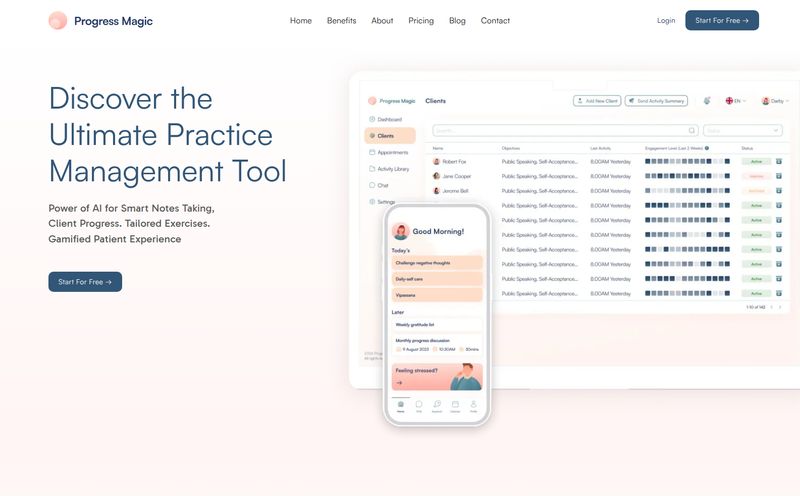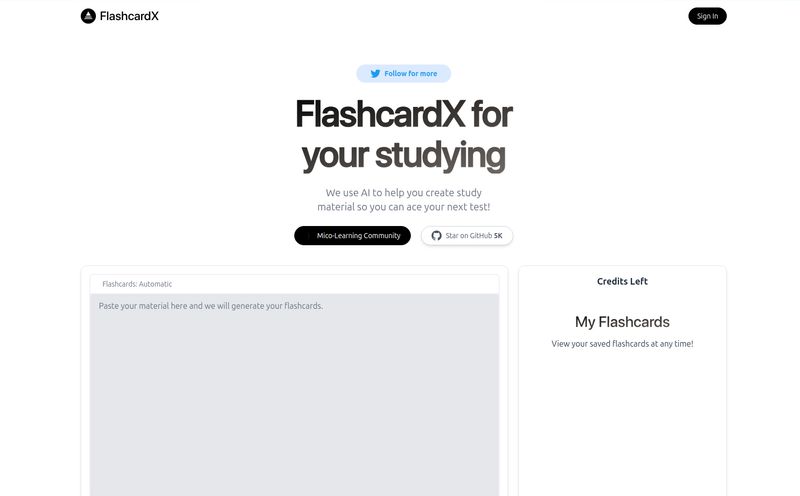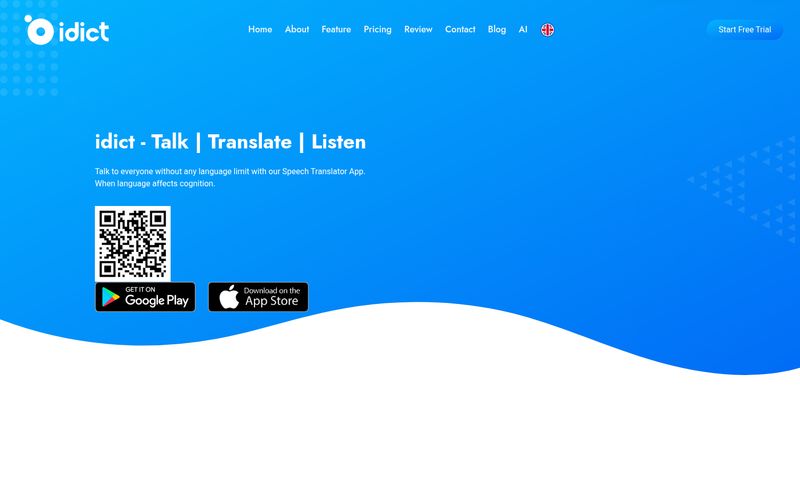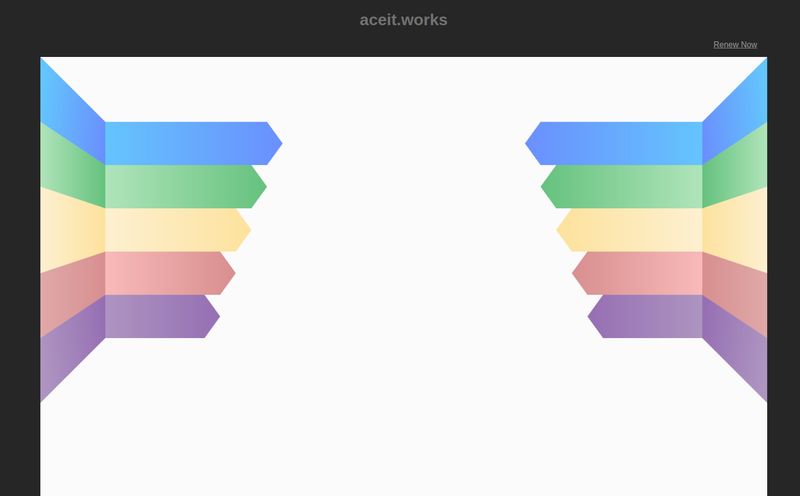We’ve all been there. It’s 11 PM, you’ve got a massive exam tomorrow, and you’re desperately trying to cram a semester's worth of information into your brain using digital flashcards. And right when you’re in the zone, BAM! A loud, obnoxious ad for a mobile game you’ll never play shatters your concentration. Or worse, you hit a paywall. “Want to use this essential study mode? That’ll be $7.99 a month, please.”
It's frustrating. For years, platforms like Quizlet have been the go-to, but lately, it feels like they’re more focused on their bottom line than on our learning. The community-feel has been replaced by a corporate one, and the ads... oh, the ads.
But what if there was another way? A few weeks ago, I stumbled upon a platform called Quenti. The homepage made a bold claim: “The ultimate learning platform.” And then, the kicker: “Free forever for students.” My cynical SEO-brain immediately went, “Yeah, right. What’s the catch?” So, I did what I do best. I signed up, kicked the tires, and spent way too much time importing old study sets to see if this thing is for real. And I have some thoughts.
So, What Exactly is Quenti?
At its heart, Quenti is a modern, clean, and straightforward learning platform. It’s built on a simple premise: studying should be about, well, studying. Not about navigating pop-ups or figuring out which features are locked behind a subscription. The biggest shocker? It's open source. This means its source code is publicly available for anyone to view, which is a huge green flag for transparency and community trust. You’re not just using a product; you’re using something the community can potentially contribute to and verify.
But the headline feature, the one that made me sit up and pay attention, is its promise to students: Free, forever. No ads. No surprise charges. Just unlimited studying. It feels like a throwback to the early days of the internet, when tools were built simply to be useful. A refreshing change, dont you think?
Breaking Down The Core Features
A platform can have the best mission statement in the world, but it’s useless without the right tools. So, does Quenti have the goods? For the most part, yeah. It covers the essentials and throws in a few surprises.
The Study Toolkit You'd Expect
Quenti comes loaded with the classic study modes that power-users of these platforms have come to rely on. You can create your own study sets or import them. Once you have a set, you can attack it with a few different methods:
- Learn Mode: This is an adaptive learning mode that quizzes you and tracks what you get right and wrong, showing you the tough terms more often.
- Flashcards: The bread and butter. Simple, clean, and without any distractions. Just the term on one side and the definition on the other.
- Test: This feature generates a practice test for you with a mix of question types—written, matching, multiple choice, and true/false. It’s a great way to simulate an actual exam.
- Match: A frantic, beat-the-clock game where you drag terms to their corresponding definitions. It's surprisingly addictive and great for quick recall.
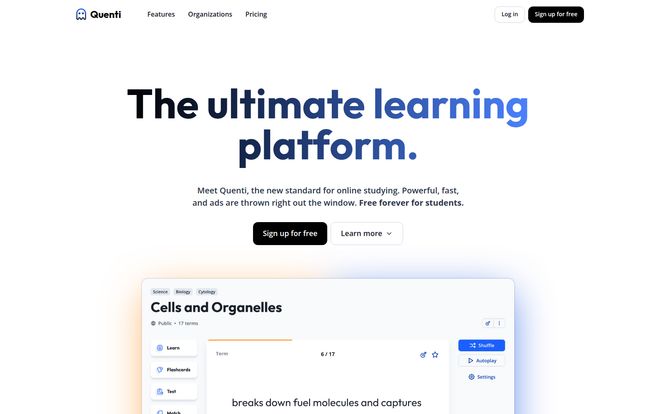
Visit Quenti
The All-Important Quizlet Import
Okay, this is huge. For many of us, the biggest barrier to switching study platforms isn’t loyalty; it’s logistics. I’ve personally got hundreds of study sets accumulated on Quizlet over the years. The thought of manually recreating them is a nightmare. Quenti’s developers clearly understood this pain point. Their Quizlet import tool is ridiculously simple. You just paste the URL of your Quizlet set, and Quenti pulls everything over in seconds. It’s like being able to move to a new apartment without having to pack any boxes. A true game-changer for getting people to actually make the switch.
Cortex: Your Personal AI Study Assistant
This is where things get a bit futuristic. Quenti is powered by something they call “Quenti Cortex.” It’s not just a buzzword; it’s an AI-driven system that helps enhance the learning process. It's most noticeable in the Test mode, where Cortex handles the grading, even for written answers. It analyzes your responses and gives you feedback. The image on their site shows a breakdown of your performance by question type, which is super helpful for identifying your weak spots. Are you great at multiple choice but terrible at written recall? Cortex will show you that. It feels less like a simple grading tool and more like a gentle, data-driven tutor pointing you in the right direction.
Quenti vs. Quizlet: The Showdown
Let's get down to it. Is Quenti a true Quizlet killer? It depends on who you are.
For the average student, the argument for Quenti is incredibly strong. You get all the core study tools you need in a cleaner, faster, and ad-free environment. For free. The ability to import your old sets removes the biggest hurdle. In my opinion, for individual studying, Quenti already has a significant edge. It’s like choosing a quiet, well-lit library over a noisy, crowded mall food court to study in.
For teachers, the story is a bit different, at least for now. Quizlet has a very mature set of tools for teachers—live games, detailed class progress tracking, and assignment features. Quenti’s teacher-focused features are still listed as “Coming Soon.” So, if you’re an educator who relies heavily on those classroom management tools, you might need to hold off for a bit. But Quenti is definitely the one to watch.
The Price of Learning (Or Lack Thereof)
I love transparency in pricing, and Quenti’s model is about as clear as it gets. Let's break it down so there are no surprises.
First up, the Student Plan. It costs exactly $0. Forever. For that, you get unlimited studying, the ability to create all the sets and folders you want, the Quizlet import tool, and the AI-powered Cortex grading. And, I can’t say this enough, zero ads. There are no hidden tiers or “premium” student features held for ransom.
Next is the Teacher Plan. As I mentioned, this is still in the works, marked as “Coming soon.” When it launches, it’s expected to include tools for managing students, viewing their progress, creating assignments, and running live games. It looks like it’s being designed to compete directly with Quizlet’s teacher offering.
Finally, there's the Organizations Plan. This is for entire schools or districts. It comes with a price tag: $199 per month if you bill annually, or $249 per month if you pay monthly. This plan is for serious, institution-level deployment. It includes activity insights, classroom analytics, the ability to manage both students and teachers, multi-domain support, and dedicated email support. It's a B2B product, and the price reflects that. For its target market, it seems pretty reasonable.
The Good, The Bad, and The In-Development
No tool is perfect, especially not a newer one. After spending a good amount of time with it, here's my honest breakdown.
The Good Stuff
I’m genuinely impressed by the student-first approach. Being free and ad-free is a massive win. The open-source nature gives me a lot of confidence in their mission. The user interface is clean, intuitive, and fast—no bloat whatsoever. And that Quizlet import feature? Chef's kiss. It shows they understand their users on a deep level.
Room for Growth
The main drawback is simply that it’s still growing. The biggest missing piece is the full suite of teacher features. This currently limits its use in a formal classroom setting. Also, while the free student plan is amazing, the Organization plan's monthly fee might be a hurdle for smaller schools or those with tight budgets, though it’s competitively priced.
My Final Take: Should You Make the Switch to Quenti?
So, here’s the bottom line. If you are a student who uses digital flashcards and practice tests to study, you should try Quenti. Today. It costs you nothing, the migration from Quizlet is painless, and the user experience is just… better. It’s calmer. More focused. It respects your time and attention.
If you're a teacher, I’d say bookmark Quenti and check back in a few months. The foundation is incredibly strong, and if they deliver on their promised features, it could easily become a classroom staple.
I’m a fan of disruption, especially when it’s in favor of the actual user. Quenti feels like a passion project built to solve a real problem, not just another venture-capital play to squeeze money out of students. And in today’s digital world, that's something worth supporting.
Frequently Asked Questions about Quenti
1. Is Quenti really free for students?
Yes, 100%. The student plan is free forever and includes all the core study features without any ads or limitations on how much you can study.
2. Is it difficult to move my study sets from Quizlet to Quenti?
Not at all. Quenti has a built-in import tool. You just need to copy the URL of your public Quizlet set and paste it into Quenti. The process is automatic and usually takes just a few seconds.
3. What is Quenti Cortex?
Quenti Cortex is the platform's integrated AI system. It helps by providing smart suggestions, grading written answers in tests, and analyzing your performance to help you identify areas where you need more practice.
4. As a free student user, are there any limits on how many flashcard sets I can create?
Nope. According to their pricing page, the free student plan includes the ability to create study sets and folders with no specified limits. You can create as many as you need for your classes.
5. When will the features for teachers be available?
The teacher-specific tools are currently listed as “Coming soon” on the Quenti website. There is no firm release date yet, but they offer a way to get notified, so it's best to check their official site for the latest updates.
6. Is an open-source platform safe to use?
Generally, yes. Open-source software can often be more secure because its code is scrutinized by a community of developers, making it easier to find and fix vulnerabilities. It also means the company is being transparent about how its software works. As always, it's good practice to use a unique, strong password.
